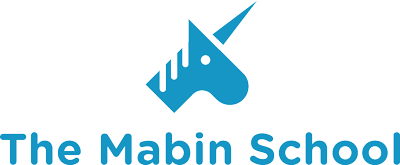The Torch Educational Foundation/The Mabin School (the “School”) is committed to creating and maintaining an environment that is accessible for all students, employees and community members. The School will continue to improve accessibility to persons with disabilities in its facilities, its policies and processes. The School welcomes and encourages all members of our community to collaborate and provide creative input in future initiatives for accessibility.
The School is also committed to providing excellent customer service in a manner that, as much as reasonably possible, respects an individual’s dignity and independence for persons with disabilities. In its ongoing efforts to strive for accessibility, the School is committed to the principles and goals of the Accessibility for Ontarians with Disabilities Act, 2005 and the Regulations supporting this Act.
PURPOSE
The purpose of this policy is to outline the practices and procedures approved by the School in order to meet the obligations of the Accessibility for Ontarians with Disabilities Act, 2005 and specifically Regulation 429/07. The School, through this policy, establishes and implements practices and procedures consistent with its goal of compliance, as well as its commitment to excellent customer service for all.
This policy aims to ensure that people with disabilities, visible or invisible, are given the same opportunity as others to obtain, use and benefit from the services offered by the School. It is specifically written to meet the requirements of Accessibility Standards for Customer Service, Ontario Regulation 429/07 under the Accessibility for Ontarians Act, 2005, and applies to the provision of products and services to the public or other third parties, not to the products themselves.
DEFINITIONS
Assistive Device: Any device used by people with disabilities to help increase, maintain or improve how a person with a disability can function. Such devices may include, but are not limited to, wheelchairs, walkers, white canes, oxygen tanks, electronic communication devices, etc.
Customer: Any person who uses the goods and services of the School, including parents and other members of the school community.
Disability: As defined in the Accessibility for Ontarians with Disabilities Act, 2005, section 2, means (a) any degree of physical disability, infirmity, malformation or disfigurement that is caused by bodily injury, birth defect or illness; (b) a condition of mental impairment or developmental disability; (c) a learning disability or a dysfunction on one or more of the processes involved in understanding or using symbols or spoken language; (d) a mental disorder, or; (e) an injury or disability for which benefits were claimed or received under the Workplace Safety and Insurance Act, 1997.
Equal Opportunity: Refers to service which is provided in a way that allows the person with a disability access to goods and service at the same level given to others.
Dignity: Refers to service which is provided in a way that allows the person with a disability to maintain self-respect and the respect of others.
Integration: Allows the person with a disability to do things on his or her own without unnecessary interference from others.
Service Animal: An animal is a service animal for a person with a disability if it is used by the person for reasons relating to helping with his or her disability; or if the person provides a letter from a doctor or nurse confirming that the person needs the animal help with his or her disability.
Support Person: A person who assists a person with a disability with communication, mobility, personal care or medical needs as he or she access the services of the School. A support person is distinct from an employee who supports a student in the system.
GUIDELINES
- The School operates in a manner that respects the dignity and independence of persons with disabilities.
- The provision of services to persons with disabilities and others must be integrated, unless an alternate measure is necessary, to enable a person with a disability to obtain, use or benefit from the school services.
- Persons with disabilities must be given an opportunity equal to that given to others to obtain, use and benefit from the school services.
Reasonable efforts will be made to ensure that services provided by the School are provided in a way that allows a person with a disability to maintain self-respect and the respect of others while allowing him or her to do things on his or her own without unnecessary help or interference from others, as long as this does not present a safety risk.
In particular, the School will use reasonable efforts in the following areas:
- Communication -The School will communicate to people with disabilities in ways that take into account their disability. We will train our staff and volunteers on how to interact and communicate with our diverse community and people with diverse disabilities.
- Telephone Services -The School is committed to providing fully accessible telephone service to all customers. We will train our staff and volunteers to communicate over the telephone in plain language and to speak clearly.
- Assistive Devices -The School is committed to service people with diverse disabilities who use assistive devices to obtain, use or benefit from our services. We will ensure that our employees and volunteers are aware and trained in the use of the various assistive devices for customers with disabilities while accessing our services.
- Billing –The School is committed to providing accessible invoices to our customers. For this reason, invoices will be provided in alternative formats, upon request.
- Use of Service Animals – If a person with a disability is accompanied by a guide dog or other service animal, the School will ensure that the person is permitted to enter school premises and to keep the animal with him or her, unless the animal is otherwise excluded by law from the premises. While visiting the School, it is the responsibility of the person with a service animal to control the animal at all times. If a service animal is excluded by law from school premises, the School will ensure that other measures are available to enable the person with a disability to obtain, use or benefit from the School’s services. In the event a staff member or student is allergic to a service animal, alternative arrangements will be negotiated.
- Use of a Support Person – If a person with a disability is accompanied by a support person, the School will ensure that both persons are permitted to enter the school premises together and that the person with a disability is not prevented from having access to the support person while on the premises. The School may require a person with a disability to be accompanied by a support person while on school premises, in situations where it is necessary to protect the health and safety of the person with a disability, or the health and safety of others on the school premises. Consent from the person with a disability is required when communicating private issues related to the person with a disability, in the presence of a support person. For those school events where admission fees apply, these fees will be waived for support persons. The School will ensure that notice is given in advance of relevant events or activities that admission fees will be waived for support persons.
NOTICE OF TEMPORARY DISRUPTION
The School will make reasonable efforts to provide customers with notice in the event of a disruption in the facilities or services usually used by people with disabilities. This notice will include information about the reason for the disruption, its anticipated duration, and a description of alternative facilities or services, if any, that are available. We will not be able to give adequate notice in case of an emergency temporary disruption.
In order to make information accessible, the signs and printed notices of sufficient size that are easily readable will be prepared.
The signs and printed notices will be displayed prominently at the entrance to the school, on notice boards and at service desks.
Telephone messages will be left in clear and concise language.
TRAINING FOR STAFF
The School will ensure that all persons to whom this policy applies to receive training as required by the Accessibility Standards for Customer Service Regulation, Training will be provided to School employees as part of orientation training for new employees. Training will be provided to each person as soon as practicable after he or she is assigned to relevant duties. Training will also be provided on an ongoing basis in connection with changes to the policies and procedures governing the provision of goods and services to persons with disabilities.
The School will ensure that the following persons receive training about the provisions of services to persons with disabilities:
- Every person who deals with members of the public or other third parties on behalf of the School, whether the person does so as an employee, volunteer or otherwise; and
- Every person who participates in developing School policies, practices and procedures governing the provision of goods and services to members of the public.
Training for School staff will focus on the following areas:
The purpose of the Accessibility for Ontarians with Disabilities Act, 2005. The requirements of the Accessibility Standards for Customer Services (Ontario Regulation 429/08). Information about the School’s policies, procedures, and guidelines pertaining to the provision of services to users with disabilities. How to interact and communicate with people with various types of disabilities. How to interact with people with disabilities who use assistive devices or require the assistance of a service animal or a support person.
How to use equipment or devices which may be available on the school premises or otherwise provided by the school that may help with the provision of services to a person with a disability. What to do if a person with a particular type of disability is having difficulty accessing the school’s services.
The amount and format of training will depend on the person’s interaction with customers.
A record of training received by staff and volunteers will be kept in the School’s Human Resources Department
FEEDBACK PROCESS
The School welcomes feedback, including feedback about the delivery of services to persons with disabilities. Any concerns or complaints regarding accessibility for persons with disabilities should be placed directly with the Principal or The Business Administrator. In the event that a complaint is made, the School will review the complaint with relevant personnel and school administration and provide a response within 10 business days.
QUESTIONS ABOUT THIS POLICY
The purpose of this policy is to provide a framework through which the School can achieve service excellence for people with disabilities. If anyone has questions about this policy, please contact the Principal or Business Administrator.
ACCESSIBLE DOCUMENTS
The Torch Educational Foundation/The Mabin School will make reasonable efforts to provide documents to people with disabilities in alternative formats upon request. In this regard, should staff receive a request for an alternative format, the request will be brought to the attention of the Principal and/or the Business Administrator to assess costs and reasonability of request. The staff person will let the individual know the service options that can be provided and, subject to the above when the individual can expect to receive the alternative format.





